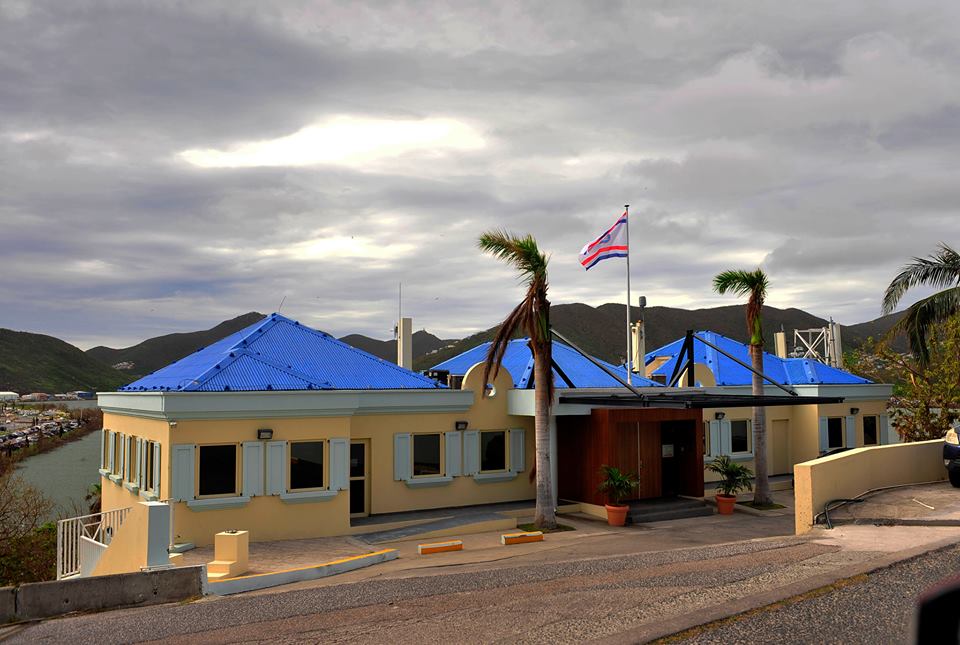No Dutch citizenship for former President Louis Constant Fleming

PHIIPSBURG — Governor Drs. Eugene Holiday was within his rights when he refused Dutch citizenship to the former President of the Collectivité de Saint Martin, Louis Constant Fleming, it appears from a ruling by the Court in First Instance earlier this month.
The reason for the refusal is that Fleming failed to state in his so-called option-declaration that he settled a case with the public prosecutor on the French side for a conditional fine of €10,000 ($11,300 at the current rate of exchange) in 2017.
Soualigapost.com reported last year about Fleming’s out of court settlement. In 2009, Semsamar – a French organization that manages and constructs social housing – bought land worth several millions of dollar that belonged to Fleming’s mother. At the time, Fleming was the administrator of Semsamar. According to Soualigapost.com this transaction is prohibited and considered as “acquisition of interest.”
According to the court ruling, Fleming has been living on the Dutch side of the island since 1999. In October 2002 he received a residence permit. On November 21, 2017, he made an option-declaration based on an article in the Kingdom Law on Dutch citizenship. On that day Fleming declared that he met the requirements for Dutch citizenship.
However, on March 2, 2018 Governor Holiday declared his intention to refuse the option-declaration. In other words: he denies Fleming Dutch citizenship. Fleming appealed this decision.
On June 29, 2018, the public prosecutor in Saint Martin confirmed to the governor the existence of a comparution sur reconnaissance préalable de culpabilité – a settlement. It shows that the prosecutor imposed a conditional 10,000 fine on Fleming in June 2017 as part of a settlement with the prosecutor’s office. Part of this settlement is that Fleming pleaded guilty.
But Fleming’s attorney, his daughter Brenda Brooks, told the court that her client did not commit the offenses mentioned in the settlement. “He only took, as the President of Saint Martin at the time, the responsibility for decisions taken by the Collectivité de Saint Martin.”
Also, Fleming did not want to confront his ageing mother with a legal procedure and the accompanying media-coverage. Part of the settlement was, according to Fleming, that it would not be recorded on his criminal record. “This agreement was made because in reality he did not commit a crime.”
Fleming’s attorney said that it is incorrect to say that her client is a threat to public order. The governor also should have considered that Fleming was born in St. Maarten, that he has been doing business on the Dutch side since the seventies, that he has never been a threat to public order and that the facts that resulted in the settlement happened a long time ago.
The court ruled that the governor has to follow the letter of the law and that there is no leeway. The option-declaration has to be refused to someone who was sanctioned during the four previous years for a crime. “A crime is also relevant if it has been concluded with a transaction,” the ruling states.
A settlement is not necessary an acknowledgement of guilt, but the voluntary acceptance of the settlement is essential, the court ruled. “Giving up legal protection by the court and the possibility of an acquittal or a lower punishment is done voluntary.”
The court ruled that there is no evidence that Fleming did not commit the crimes he was accused of. The court dismissed the argument that the (alleged) crimes happened a long time ago. “The guidelines emphatically explain why it looks at the date of the settlement and not at the date when the crimes were committed.”
“The special circumstances the governor should have taken into account are not so special that he was not allowed to refuse the option,” the ruling states.
Fleming has six weeks to appeal the ruling.






















